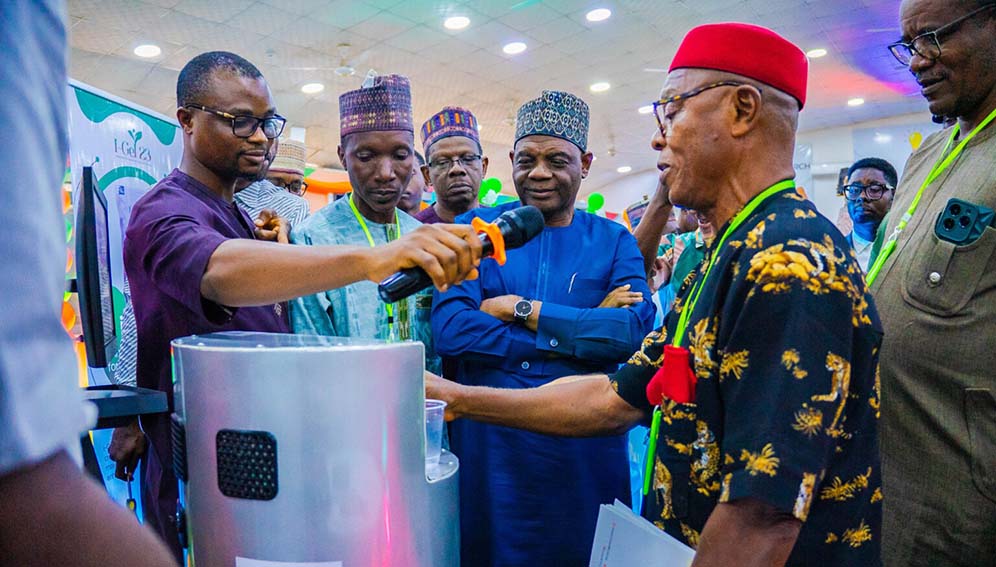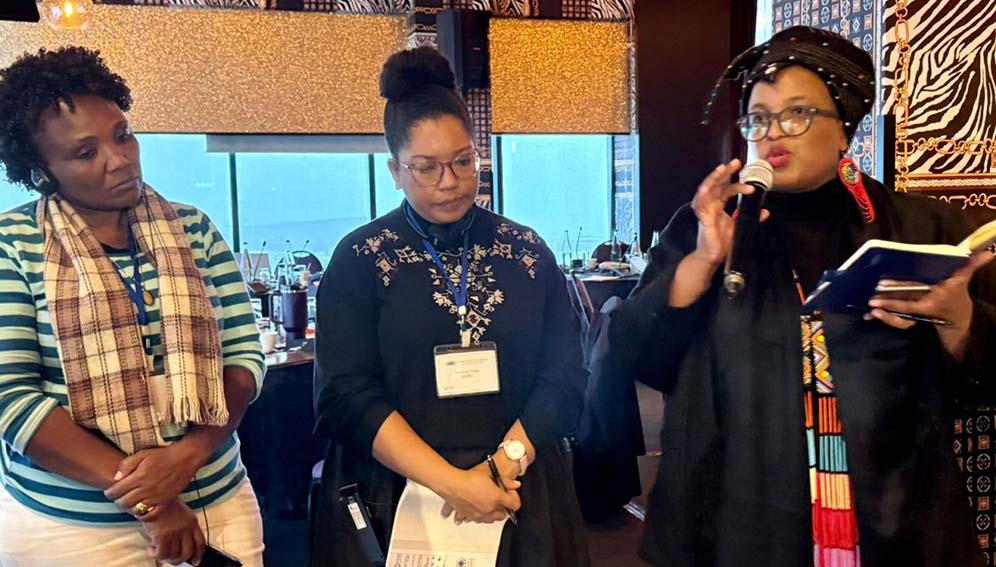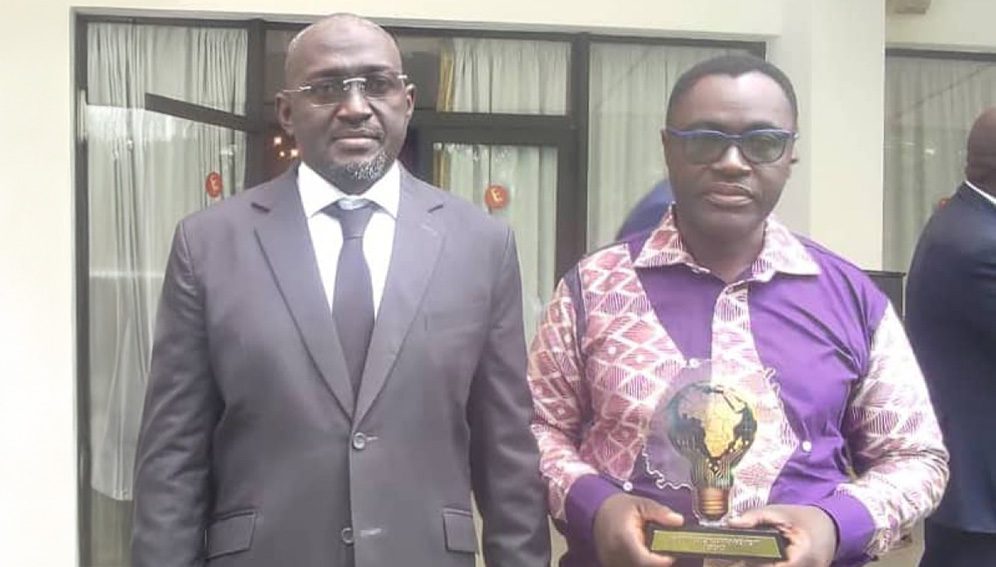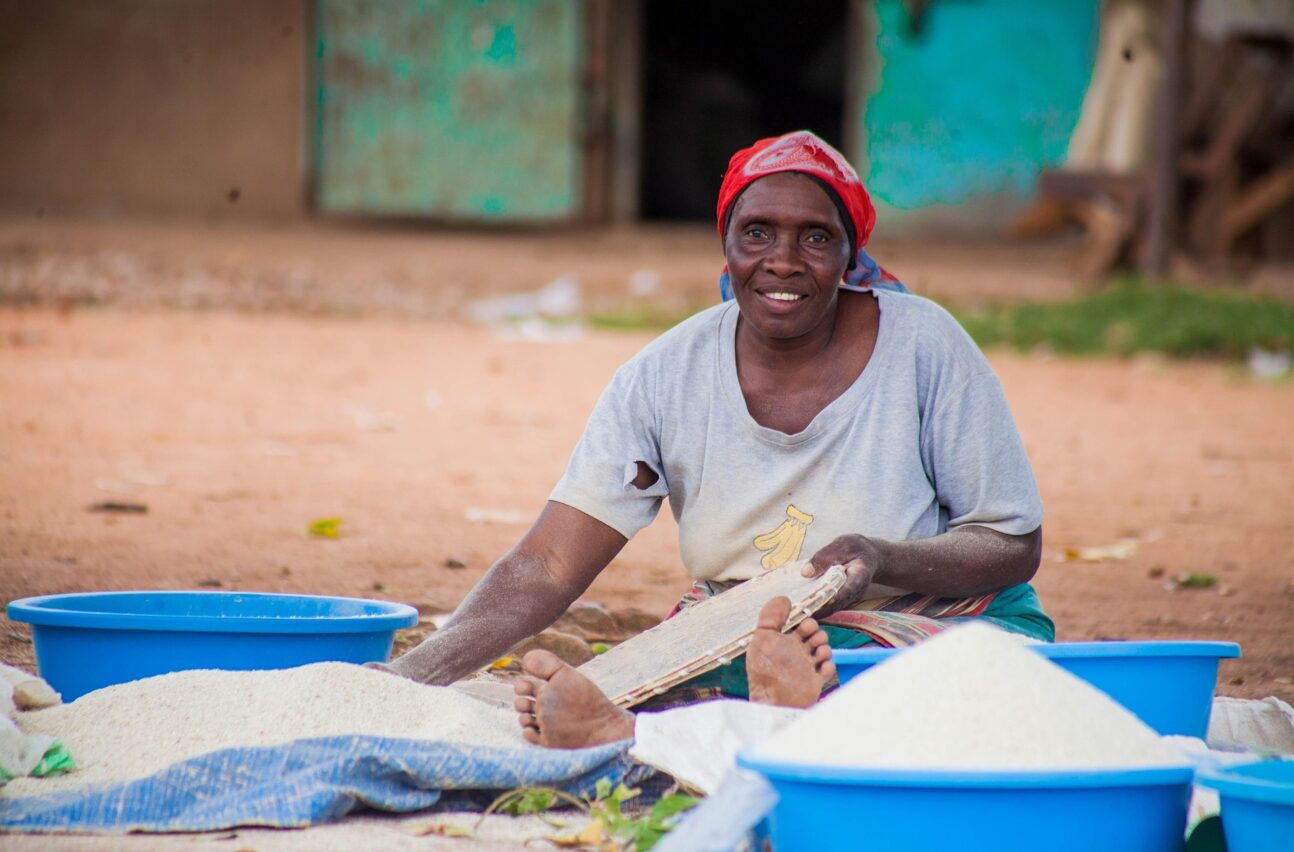SGCI News
Hildegalda Mushi, senior researcher at the Tanzania Commission for Science and Technology (COSTECH), shares her reflections on the impact of a panel discussion on the green energy transition involving members…
Hildegalda Mushi, senior researcher at the Tanzania Commission for Science and Technology (COSTECH), shares her reflections on the impact of a panel discussion on the green energy transition involving members of the Science Granting Councils Initiative’s Gender Equality and Inclusion (SGCI GEI) Project at the Gender Summit in Ghana.
Science granting councils participating in the SGCI GEI Project had an opportunity to shine on a regional and global stage when they shared insights from GEI initiatives implemented over the past three years during a session at the Gender Summit held in Ghana from 8 to 9 June.
The Gender Summit was initiated in 2011 to facilitate a dialogue on gender equality issues in science. The event traditionally brings together scientists, gender scholars, policy makers, and relevant stakeholders in science endeavours concerned about equality and quality in research results and outcomes.
This year’s event – the fourth Gender Summit to be focused on Africa (GS-Africa 23) – examined “Africa’s energy transition pathways and the Green New Deal through a gender lens”. It is through this focus that the summit organisers acknowledged that despite growing evidence that green energy transitions have important implications for gender and social equity, gender considerations are often overlooked in energy and climate-related research.
The GS-Africa 23 was convened by Portia and the African Institute of Mathematical Science, with lead partners in the form of influential science institutions (academic, funding, policy and professional) in Africa and in countries that collaborate with Africa on research and innovation.
The summit provides an important regional and global platform for discussions around GEI in the African science technology and innovation space.
Justice for all humanity
In a 90-minute panel and plenary discussion at the GS-Africa 23, African science granting council representatives made the case for councils as catalysts of innovation for sustainable development, which can stimulate gender transformative research for a fair, inclusive, and just energy transition.
Explaining the importance of the GEI Project participation at the summit, Mrs Hildegalda Mushi (COSTECH) who moderated the panel discussion, said: “When it comes to climate change as a lived reality, GEI has to be at the centre of the debates on experiences, adaptation and mitigation strategies. It’s true that climate change affects all genders, but women disproportionately experience the impacts of climate change, especially those living in low-income communities.
“To truly do justice to all humanity, GEI has to shape the debates on energy transition to ensure that resources directed towards addressing climate change programmes and projects reach those mostly affected, those with the least power and resources to alter the impacts of dry weather, floods, compromised fauna and flora and their resultant impacts.”
Mushi said in low-income countries, energy prices were rising rapidly, mechanisms to compensate poor communities were not in place, regulations were becoming tighter, and there was “widespread confusion” about where to draw the boundary between “permission for attainment of basic needs and protecting the Earth”.
“While most governments in the South are struggling with adaptation, with limited skills-sets, financial and regulatory resources, women and poor communities are not receiving just compensation for (allegedly) refraining from destructive actions to nature, such as polluting cooking energies,” she said.
While a few countries, like Ghana, were emerging as frontiers for concrete policy actions for climate change, efforts to reach those in the poorest communities are still at infancy, she said.
“On the other hand, the world is witnessing the acceleration of innovation and technology to address climate change, but these resources are not easily accessible to women technologists and entrepreneurs.
“Much of the science driving climate change mitigation and adaptation is carried by male faces, leaving behind knowledge of experiences and the potential contribution of women. Where women are brought in, they are presented as victims, consumers of pre-meditated interventions, rather than contributors to positive change.
“To truly do justice in ‘energy transitions’, GEI has to feature at all podiums at global, regional, national and community levels.
‘Straight talk’
Mushi said the commitment of the panellists to the GEI Project and their expertise in their fields was clear and the impact of their inputs significant. Inputs were diverse – the panel included Mr Steven Sebbale (Uganda National Council for Science & Technology), Ms Nsama Mataka (National Science and Technology Council, Zambia and a member of the Global Research Council’s Equity, Diversity and Inclusivity working group), and Ms Tirelo Ramasedi (on behalf of the gender equality and inclusivity team of the
Department of Research Science Technology & Innovation (Morupule Coal Mine), Botswana
“Our panellists were knowledgeable about their national context with respect to gender and inclusivity matters. They could easily pull out key issues related to the SGCI initiative and extrapolate to the broader work conducted by their councils, and relate them to ongoing national efforts.
“What was also remarkable was the ‘straight talk’ about councils’ lived experiences and the strong sense of direction when it comes to what makes sense for them as SGCs, countries and as a regional block in the context of the summit.
“Before commencing, one could have seen the issue as a drop in the ocean of the summit; but when it ended it turned out to be an excellent walk-away trigger to the thoughts of summit-makers,” she said.
Mushi described thepanel discussion as a worthy end to the summit.
“It must be remembered that this was a last session of the summit. You would expect people to have their eye on the clock and the exit doors. Instead, it turned out to be a very active session, with people nodding in agreement, relaying relevant comments and asking questions about the SGCI and GEI during the sessions. They also reached out to the moderator and panellists after the summit’s close.
“All these were good indications that the issues addressed by the panel were relevant and perhaps had raised awareness around a relatively new area that summit participants could explore further.”
Related News
TETFund, Innov8 Hub showcase innovations at research demo day
The Tertiary Education Trust Fund (TETFund) and Innov8 Hub have concluded the Science Granting Councils Initiative (SGCI) Demo Day, an event that highlighted Nigeria’s growing capacity to transform academic research into market-ready solutions. TETFund, Nigeria’s representative council for SGCI, partnered with Innov8 Hub to support…
HSRC pushes for inclusive research systems at SGCI gender summit
The Human Sciences Research Council (HSRC) hosts the Science Granting Councils Initiative (SGCI) Gender Equality and Inclusion (GEI) learning summit and calls for a more inclusive research landscape. The event marked the culmination of a three-year project aimed at embedding gender equity and inclusivity into…
SGCI-funded research wins science prize in Côte d’Ivoire
A Science Granting Councils Initiative (SGCI) funded research has earned national recognition in Côte d’Ivoire. The winner, Rodrigue Adjoumani Kouakou, is the assistant professor of chemistry, physics, and process engineering at the Training and Research Unit for Fundamental and Applied Sciences (UFR SFA) of Nangui…
Research and Resources
SGCI funded projects
Zambia’s top researchers pioneer solutions for climate resilience, food security, economic growth
Project Titles & Institution Areas of Research Number of Projects being funded Project Duration Grant Amount In-Kind Distribution Council Collaboration with other councils





